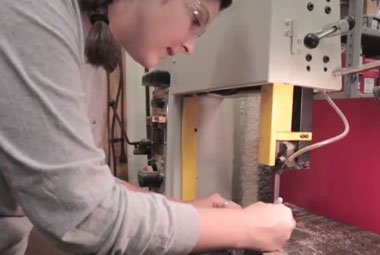
Bachelor of Science in Civil Engineering
Bachelor of Science in Civil Engineering
Overview
With a Bachelor of Science (BS) degree in Civil Engineering from Northeastern University you can have a vital role in human progress and well-being worldwide. Civil engineers design and construct buildings, bridges, tunnels, dams, and river systems. They also plan, design, construct, and manage highways, railroads, canals, and airports; regulate rivers and control floods; and design and build systems for water distribution and environmental protection.
Conceptualizing, innovating, designing, and building sustainable infrastructure and environments is fundamental in helping society progress. Modern challenges, including engineering a resilient and sustainable urban infrastructure; establishing clean water and a clean environment; and advancing technologies in computing, sensing, and human health, are all part of the development of society.
With a broad range of applications, our BS in civil engineering students have the opportunity to explore a range of disciplinary and interdisciplinary tracks, including environmental and water systems, structural engineering, transportation engineering, geotechnical and geoenvironmental engineering, construction management, civil infrastructure security, environmental health, and sustainable resource engineering.
Innovative Curriculum
As a civil engineering student at Northeastern University, students begin their education by acquiring a common base of knowledge in engineering science and then learn to design and analyze related civil and environmental engineering solutions. Students have a range of technical electives either to gain a broad base of courses in civil and environmental engineering or to concentrate in one of five civil engineering technical areas, including construction management, environmental engineering, geotechnical/geoenvironmental engineering, structural engineering, and/or transportation engineering. General electives are available to complement their engineering knowledge with valuable courses in the arts, languages, social sciences, public health, business, broader engineering and computer science disciplines, and related fields.
The Civil Engineering curriculum culminates in a major semester-long capstone design project in the senior year. In this project, students are asked to apply their knowledge and experience to a real-world design problem and develop feasible solutions.
Students have the option of selecting from several minors to complement their degree and personalize their path. Students can select from minors in the department, in other engineering departments, or from across the university.
Based on your area(s) of interest, you can use the guides below to choose suggested courses that would satisfy the technical, science, and general electives needed to complete your curriculum requirements.
The PlusOne Accelerated Master’s Program allows current undergraduate students to accelerate the attainment of the master’s degree by applying graduate credits taken as an undergraduate toward both the undergraduate and graduate degrees. Current students apply to enroll in the PlusOne program. Students attain their bachelor’s degree followed by a PlusOne year to complete the master’s degree.
Students currently earning a BS in Civil Engineering can select from the below MS degree PlusOne pathways.
The Bachelor of Science Program in Civil Engineering is accredited by the Engineering Accreditation Commission of ABET, www.abet.org.
Experiential Learning
Experiential learning is the heart of a Northeastern education, combining rigorous coursework with hands-on experience in the classroom, in the lab, and in the field—locally and abroad. With our signature cooperative education (co-op) program, students typically gain six months of work experience integrated as part of the educational program. Both five-year, three-co-op and four-year, two-co-op program options are available.
Academic Advising
For support with academic questions, contact the academic advisor assigned to this program.
Admissions & Aid
Ready to take the next step? Review Degree Requirements to see courses needed to complete this degree. Then, explore ways to pay for your education. Finally, review Admissions Information to see our deadlines and gather the materials you need to Apply.
Student News

CEE Student Nominated for Rhodes and Marshall Scholarships
Emily Zakrewski, E’24, civil engineering, was nominated for the Rhodes and Marshall Scholarships by Northeastern University.
Eleven COE Students Apply for Fulbright
The Fulbright Campus Committee of Northeastern University, composed of faculty and staff from across the disciplines and colleges, announced eleven COE students and alums who applied for the Fulbright this year.

How Climate Change is Impacting Airplane Turbulence
CEE Distinguished Professor Auroop Ganguly and University Distinguished and MIE William Lincoln Smith Professor Ahmed Busnaina discuss why there has been an increase in airplane turbulence recently and how the aerospace industry is working on resolving the issue through new technological advancements.

Alumni Wins Women Who Empower Innovator Award
Julieta Moradei, E’16, civil engineering, was one of the innovator fellows who was awarded the 2025 Women Who Empower Innovator Award.
Professional Licensure: If looking for information on obtaining Professional Licensure, visit the Professional Licensure Disclosure Page or contact the Associate Dean for Undergraduate Education, Susan Freeman, at s.freeman@northeastern.edu.


